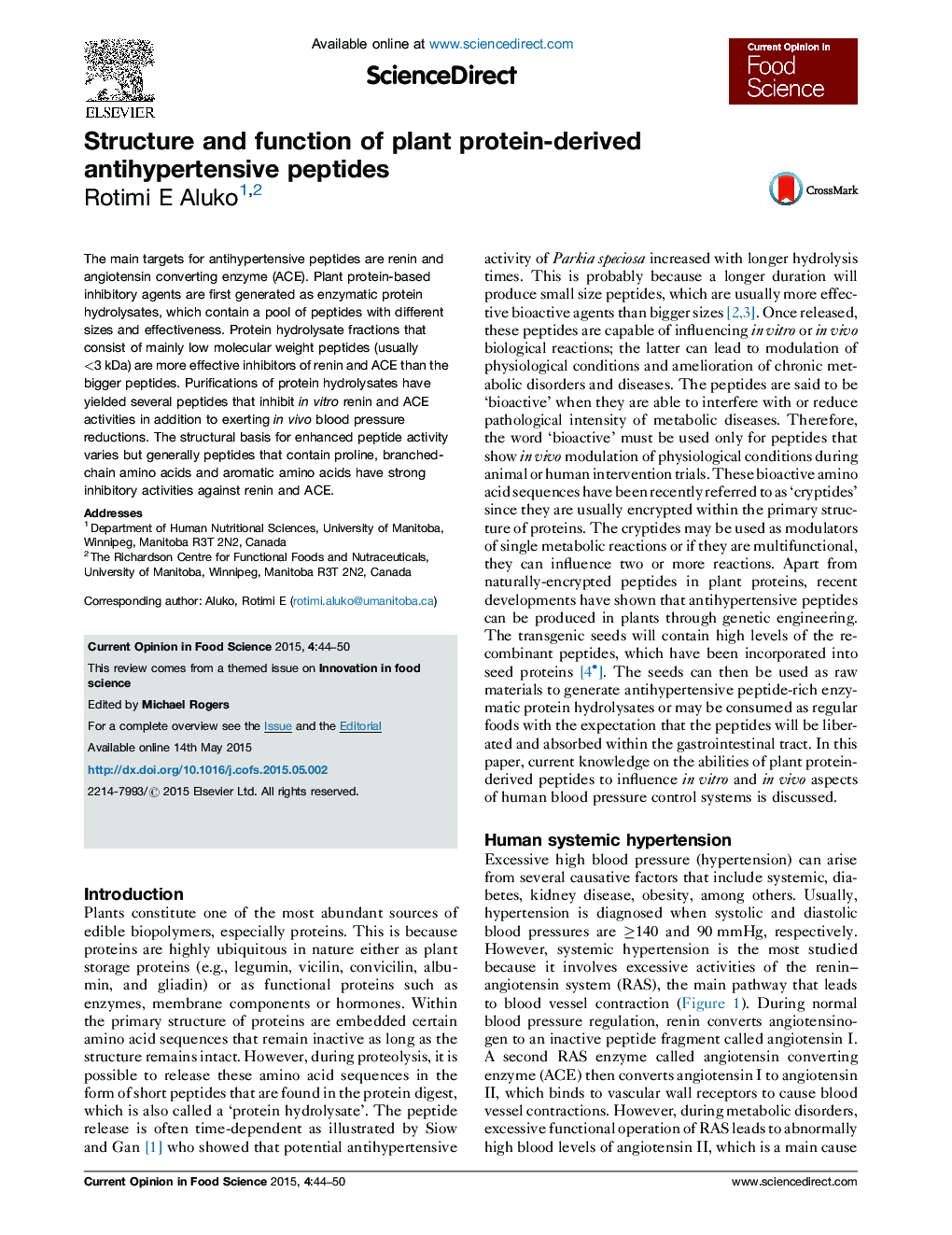| Article ID | Journal | Published Year | Pages | File Type |
|---|---|---|---|---|
| 2079687 | Current Opinion in Food Science | 2015 | 7 Pages |
•Whole protein isolates or specific protein fractions can be used for enzyme hydrolysis.•Low molecular weight plant peptides (<3 kDa) are better antihypertensive agents.•Branched-chain amino acids contribute to antihypertensive ability of plant peptides.•Proline and aromatic amino acids enhance antihypertensive effects of plant peptides.•In vitro renin-inhibitory potency seems to correlate with in vivo blood pressure reduction.
The main targets for antihypertensive peptides are renin and angiotensin converting enzyme (ACE). Plant protein-based inhibitory agents are first generated as enzymatic protein hydrolysates, which contain a pool of peptides with different sizes and effectiveness. Protein hydrolysate fractions that consist of mainly low molecular weight peptides (usually <3 kDa) are more effective inhibitors of renin and ACE than the bigger peptides. Purifications of protein hydrolysates have yielded several peptides that inhibit in vitro renin and ACE activities in addition to exerting in vivo blood pressure reductions. The structural basis for enhanced peptide activity varies but generally peptides that contain proline, branched-chain amino acids and aromatic amino acids have strong inhibitory activities against renin and ACE.
